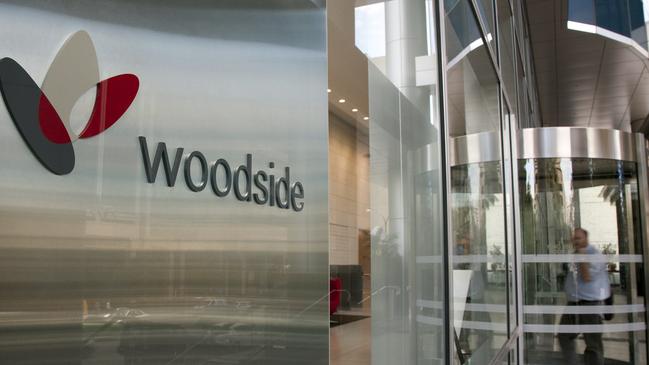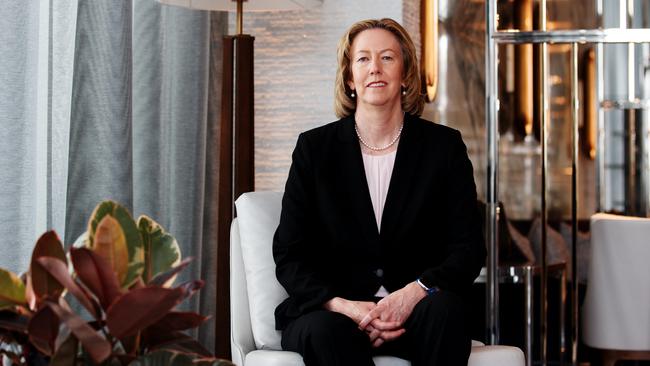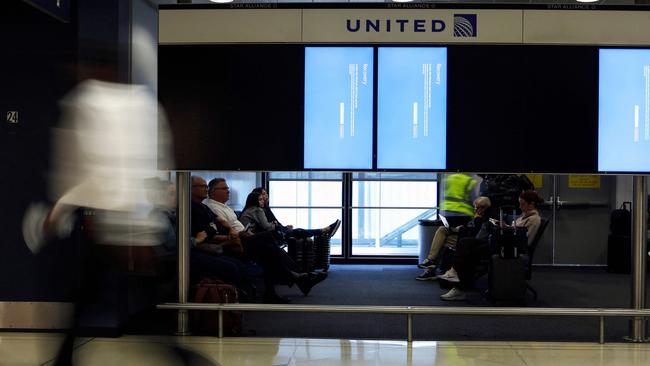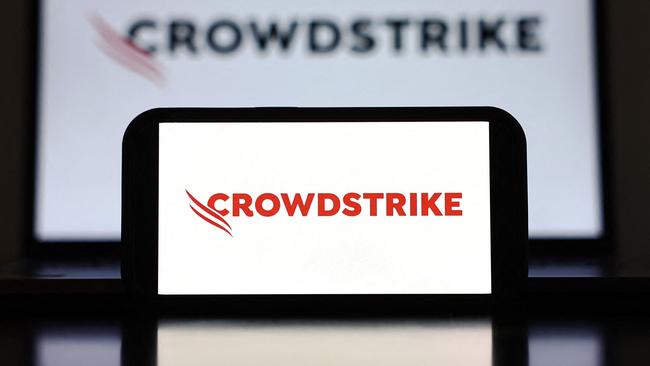Woodside chief Meg O’Neill makes $1.8bn bet on Trump energy trade
There’s good reason why Woodside boss Meg O’Neill is in a hurry to get her planned $1.8bn buyout of a cash-strapped US gas hopeful away.

Business
Don't miss out on the headlines from Business. Followed categories will be added to My News.
Woodside will be racing against the clock to complete its $US1.2bn ($1.8bn) acquisition of the yet-to-be-built Driftwood LNG processing and export plant near Beaumont, Louisiana by December at the latest.
Why the rush? There happens to be a presidential vote in November and the candidate that the polls are firmly favouring – Donald Trump – has just put energy on par with national security.
This means foreign interloper Woodside Energy planning to buy the cash-strapped Tellurian, the owner of the Driftwood project, risks stepping into the political fray if the planned buyout slips into January.

Tellurian already has permits in place to export gas, but the US Federal Trade Commission under President Joe Biden has gone slower on mergers and acquisitions. And in the case where there is political attachment, such as Nippon Steel’s efforts to buy out US Steel for $US14bn, the foreign buyer was run out of town.
The Tellurian deal is a drop in the ocean but it remains a risk in the unpredictable environment around gas, particularly given the rising protectionism environment. Without a take or pay contract, Woodside could be exposed if there are export limits slapped on LNG.
The other side to this is that Trump’s call to “drill, baby, drill” from day one threatens to flood the market when Driftwood is scheduled to come on stream from 2028.
Woodside CEO Meg O’Neill is unfazed, maintaining there’s plenty of room for growth in gas as more renewables come on stream.
“The LNG market over the past decade grew 60 per cent. We’re expecting growth of 50 per cent in the decade ahead. So while there is a lot of new LNG potentially coming into the market, there’s also a lot of increased demand for this product,” she says.
“We’re well positioned to be competitive with those other projects.”
The Tellurian move is a curious adjacency by Woodside, which is better known for backing high-risk, high-reward projects that are aimed at bolstering its maturing reserves. Driftwood is a low-reward, heavy processing plant that still comes with plenty of construction and project risk.

This had some questioning Woodside’s determination to pay a hefty 75 per cent premium to secure an agreed deal for Tellurian in an environment where there were no other bidders coming out. This could be the Trump factor already distorting the market, with Woodside determined to get a deal done as soon as possible.
O’Neill says the project will give Woodside a significant foothold in the US LNG market as it diversifies its risk away from Australia.
Remember Woodside inherited the BHP Gulf of Mexico oil operations through the 2022 buyout but this is a first for core LNG processing and export in the US. Once fully up and running at 27.6 million tonnes annually, it takes Woodside a step closer to being a meaningful player in the European LNG market.
The forecast capital on the project is $US15.1bn, which will be funded as Woodside brings in potentially 50 per cent partners to the deal over time. More than $US1bn has been spent inferring the acquisition has been done at book value.
Tellurian is facing its own balance sheet pressures and has been scouting for partners before moving to financial sign-off on the project. O’Neill expects financial approval under Woodside to be signed off in the March quarter of next year. Given the current levels of cash being spun out of the business, the capex won’t come at the cost of dividends, O’Neill says.
Who pays for CrowdStrike chaos?
Thousands of planes grounded; sales gone and work lost.
Fallout from Friday’s global tech outage is fast adding up and the recovery could take weeks. And, in many ways, the financial cost will be impossible to measure.
The botched software update by $US72bn ($107bn) Texas-based software player CrowdStrike was felt around the world, with banks unable to process transactions and with emergency services in some jurisdictions frozen out.
Airlines including Jetstar and Virgin Australia were temporarily grounded. Qantas had problems processing and booking travellers, while millions of businesses simply lost their work as productivity ground to a halt. In Australia, some banks including Bendigo were unable to process online transactions, while PayID services were temporarily down.
IT staff from every affected business worked around the clock through the weekend to manually remove the update on devices to restore at least basic technology functionality.
CrowdStrike’s software is designed to work with Microsoft’s Windows platform to provide high-end security for applications and services run over the cloud.
More than one in two enterprise servers use the Windows operating system, which shows the vulnerability of the global tech system. It was those on both Linux and Apple operating systems who continued running unaffected during the CrowdStrike crash.

From the corner store to the corporate office, the tech wipe-out was indiscriminate and the first taste for many of what a full-scale cyber-attack would be like.
Except this one wasn’t an attack, it was friendly fire. It was meant to be a routine software upgrade, bizarrely undertaken by CrowdStrike on a Friday rather than in the dead zone of the weekend when fewer people could be affected if something went wrong.
The question will soon shift from recovery to who’s footing the bill for it all. And chances are it’s not insurers.
Most companies and mid-sized businesses have some form of business interruption insurance. However, cyber incidents are often expensive add-ons. Even then, policies are designed to cover cyber attacks, not outages from botched software upgrades.
There’s the same approach to travel insurance. Only the most expensive policies or corporate insurance plans cover delays linked to cyber incidents. Most day-to-day insurance policies exclude technology interruptions for payouts.
Then there were potentially hundreds of thousands of people who were hit by the airline grounding. While for many it was an inconvenience, for some there’s a real financial cost. The commute to the airport, or hotels booked, someone is paying for it.

Indeed, the fine print of one of Australia’s biggest travel insurers says “the use of, or inability to use any application, software, or program in connection with any electronic equipment” being behind a travel delay is not covered.
Most of the losses will be written off, by individuals and businesses. Given the scale of potential payouts, insurers will hold firm.
The Austin, Texas-based CrowdStrike has come under fire for its initially unapologetic stance. No doubt the idea behind this position will be to protect its liability even as it faces lawsuits from its big US clients. A shareholder class action is likely, with its shares falling 10 per cent.
Chief executive George Kurtz said the fault had been identified and the company had deployed a “fix”. Kurtz might be the co-founder, but a failure of this magnitude will result in shareholders demanding management change.
CrowdStrike, through its Falcon platform, has been gaining momentum in cloud-based security, particularly among big global corporate clients. The AI boom has given it more momentum, with its shares up more than 100 per cent over the past year.
It recently posted a 33 per cent jump in first quarter revenue and its profit margins are running at nearly 80 per cent. But, with annual sales running at $US4bn likely to sharply slow, its ability to pay will be limited.
Microsoft will also argue it was customer of CrowdStrike just like thousands of others. However, the reputational damage will be immense just as its AI-exposure has delivered it the crown as the world’s biggest software player. Microsoft has its fourth quarter earnings call on July 30.
It’s a reminder of Microsoft’s famously “buggy” Windows platform of recent decades.
For large Australian organisations running critical systems, this should make some think twice about going all out with Microsoft.
johnstone@theaustralian.com.au
More Coverage
Originally published as Woodside chief Meg O’Neill makes $1.8bn bet on Trump energy trade





